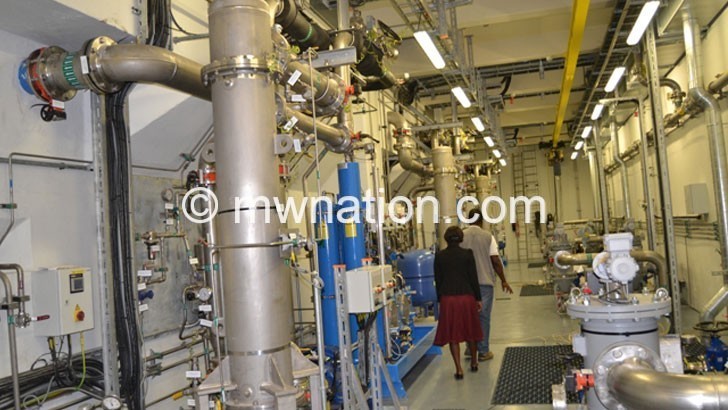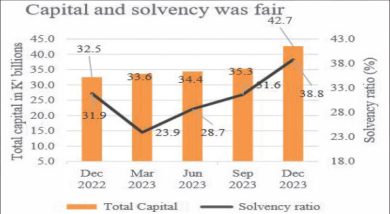Egenco upbeat on new Escom deal
Electricity Generation Company (Egenco) has expressed optimism that it would sign a new power purchase agreement (PPA) with Electricity Supply Corporation of Malawi (Escom) by November 1 this year.
Egenco spokesperson Moses Gwaza was reacting to an agreement between the two firms pertaining to non-repayment of K53 billion utility bill owed by the sole power supplier whose payment will be staggered.

He said: “We are happy now that we can be paid for the generated power. This will enable us to re-invest the money back in energy generation and continue expanding our generation capacity.
“We are optimistic that negotiations on the PPA will be concluded and that we will have a new PPA as directed by government.
His reaction follows a statement from the Office of the Vice-President on Tuesday on the resolution that the Ministry of Finance will facilitate the review and amendment of the current PPA and ensure that the new arrangement is effected by November 1 2020.
The statement said it was agreed that Escom should pay K11.7 billion out of the K53 billion, which it owes Egenco by December 31 2020 with 60 percent of the balance equivalent to K25.2 billion to be paid by December 31 2021.
For the remaining 40 percent, the statement said the Ministry of Finance will facilitate that Egenco issues a credit note which means there will be no bailout for Escom.
Betchani Tchereni, associate professor of economics at The Polytechnic, said on Tuesday that by restructuring the loan, government has helped Escom.
“For Escom to raise the tarrifs, they have to satisfy a number of indicators provided through Mera [Malawi Energy Regulatory Authority],” he said.
Mera records show that Escom currently sells its electricity to consumers at K88.02 per kilowatt hour.
Former Escom chief executive officer Kandi Padambo observed on Tuesday that the price that Egenco charges Escom for power generated and supplied must be reviewed.
He said: “It was not a bad idea to create a stand-alone incorporated company out of Escom’s generation unit, but efficiency advantages that might have accrued even to the benefit of electricity customers were negated by management factors that impacted negatively on Escom’s operations.”
Escom—a monopoly for years—last year said it found itself in a bad financial standing after its split that midwifed Egenco on January 1 2017 as part of the Power Market Restructuring Programme aimed at improving efficiency in the market by, among others, having separate power generation and distribution entities.
The split meant Escom had to buy power from Egenco and sell the same to consumers at a cost-reflective rate.
Escom is also saddled by bad procurement decisions estimated at K18 billion for equipment former board chairperson Thom Mpinganjira said the parastatal may not need for years. n




